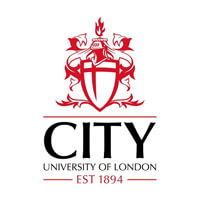fees waived
Mathematics and Finance, BSc (Hons)
City, University of London, United Kingdom
Subject ranking
UK / ARWU 2024 5th
UK / Times 2025 5th
UK / CUG 2024 13th
Costs
food & rentS$25.1K / year
Entry requirements
Scholarships
Limited quantity
Information
Code
Intakes
Website (External)
Programmes
Information
Duration
2028
This BSc in Mathematics and Finance provides a robust foundation in advanced mathematical techniques, economic theory (micro and macro), and finance topics, equipping students for high-demand careers in business, finance, and actuarial science. Graduates are sought after by international firms for roles in risk assessment, insurance, and statistical finance. The program emphasizes practical applications, including computing, statistics, probability, and financial mathematics, with an optional paid work placement at organizations like Barclays or IBM to enhance employability. Taught by experts from the Departments of Mathematics and Economics, plus Bayes Business School, it leads to potential exemptions from Institute and Faculty of Actuaries exams.The three-year course includes core modules such as Functions and Calculus in Year 1, advancing to Real Analysis and Fundamentals of Finance in Year 2, and Differential Equations and Corporate Finance in Year 3. Assessment combines exams, coursework, group projects, and presentations, weighted across years, with feedback typically provided within three to four weeks.
This three-year BSc Mathematics and Finance degree provides an advanced understanding of mathematics and its application to the world of finance. Year 1 -Functions, Vectors and Calculus (30 credits) -Algebra (15 credits) -Introduction to Microeconomics (15 credits) -Introduction to Macroeconomics (15 credits) -Linear Algebra (15 credits) -Introduction to Probability and Statistics (15 credits) -Financial and Investment Mathematics A (15 credits) -Skills, Careers and Employability Analysis for Mathematics students (5 credits) Year 2 -Programming and Data Science for Professions (15 credits) -Real and Complex Analysis (30 credits) -Vector Calculus (15 credits) -Fundamentals of Finance (15 credits) -Financial Reporting (15 credits) -Financial and Investment Mathematics B (15 credits) -Professional Development and Employability (5 credits) -Sequences and Series (15 credits) -Applied Mathematics (15 credits) -Numerical Mathematics (15 credits) -Applications of Probability and Statistics (15 credits) Year 3 -Differential Equations (30 credits) -Group Project (15 credits) -Advanced Complex Analysis (15 credits) -Game Theory (15 credits) -Stochastic Models (15 credits) -Operational Research (15 credits) -General Insurance (15 credits) -Corporate Finance (15 credits) -Introduction to Financial Derivatives (15 credits) -Corporate Risk Management (15 credits) -Discrete Mathematics (15 credits) -Dynamical Systems (15 credits) -Introduction to the Mathematics of Fluids (15 credits) -Introduction to Mathematical Physics (15 credits) -Mathematical Processes for Finance (15 credits) -Groups and Symmetry (15 credits) -Mathematical Biology (15 credits) -Probability 2 (15 credits)

